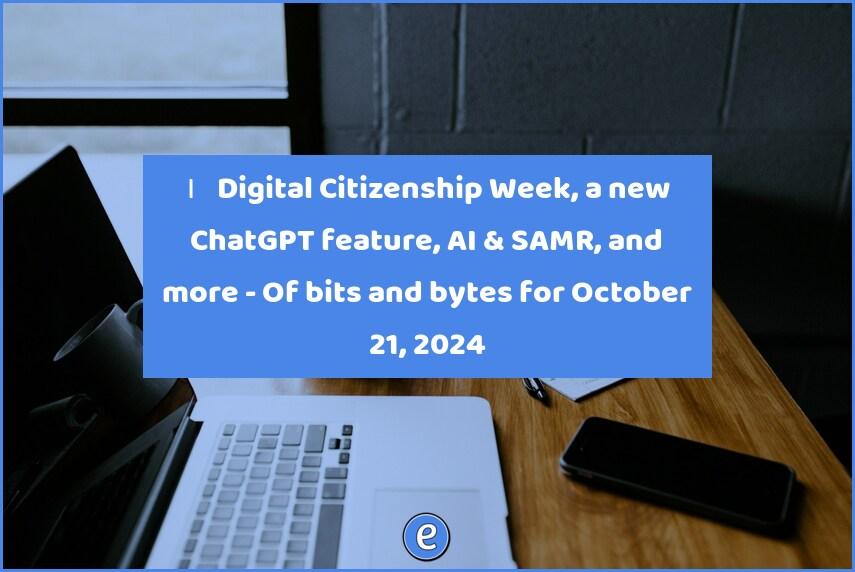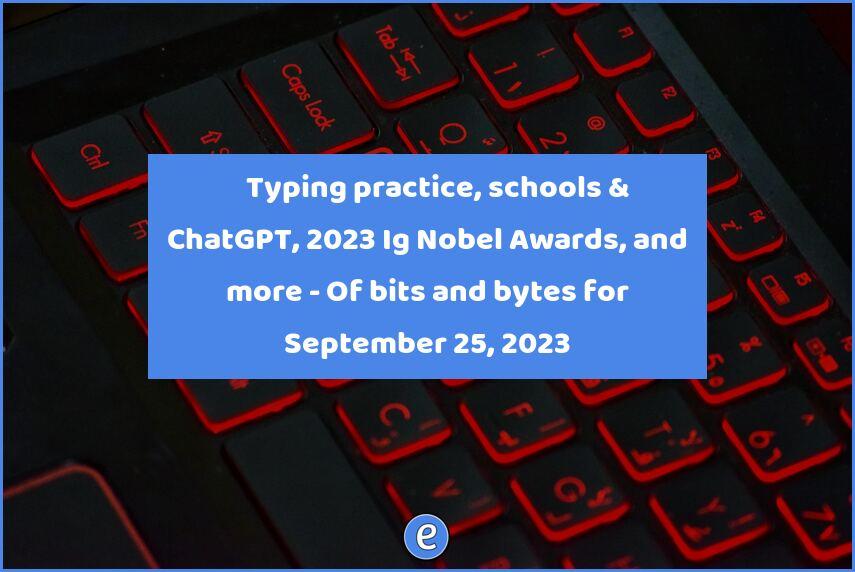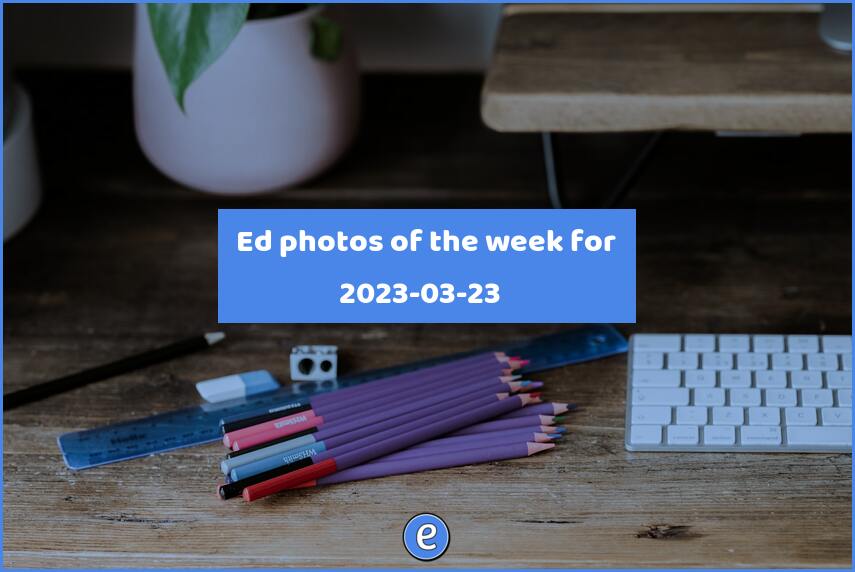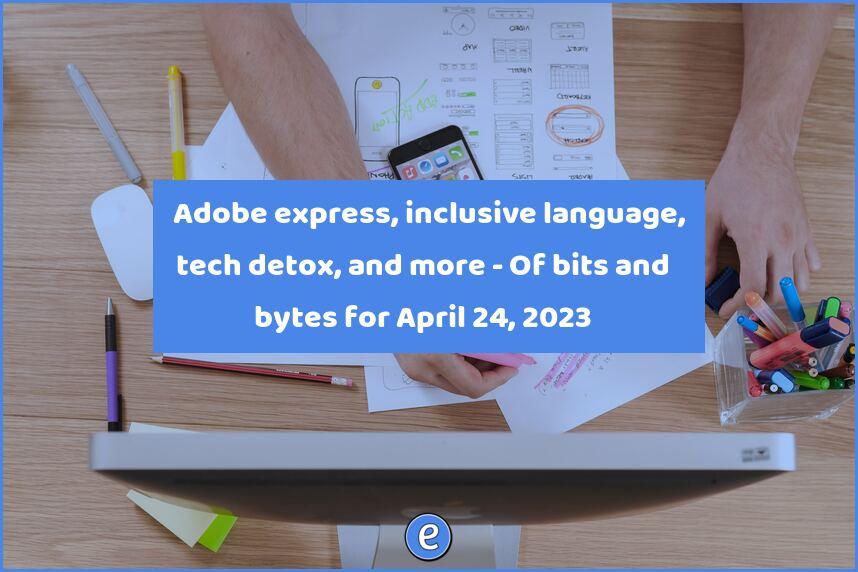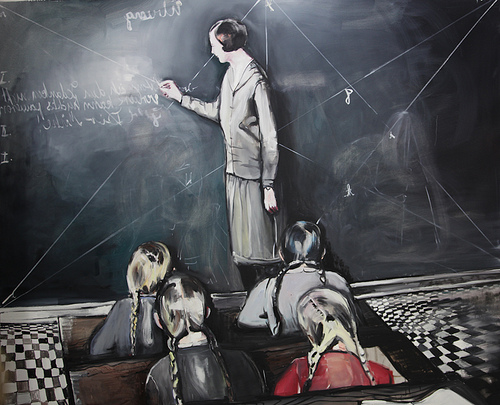🙋♂️ Digital Citizenship Week, a new ChatGPT feature, AI & SAMR, and more – Of bits and bytes for October 21, 2024
Internet Travels
Of bits and bytes is my weekly round up of interesting links and ideas I discovered on the internet. It is published on Mondays for the previous week
Digital Citizenship Week, from October 14-18, 2024, is all about boosting awareness of safety, responsibility, and ethics in our digital lives. There are a range of activities for teachers, administrtorss and families such as digital well-being, understanding online privacy, and exploring AI’s impact in classrooms.
Learn21 is a proud sponsor of Eduk8me and the Of Bits and Bytes newsletter. Read more about their mission at Learn21.
Apps
ChatGPT has introduced a new feature, canvas. Before, if you were working on a writing prompt or a coding prompt, ChatGPT would have have to continually send it’s work to you. Canvas allows ChatGPT to show the document or code and change it inline in your browser. It also allows you to make changes inline and have ChatGPT interact with those changes. All without having to copy and paste.
Google Chrome is in the process of developing a “close unused tabs” feature, which nudges you to shut down those tabs that have been sitting around for over a week. The feature is currentl available in the Chrome Canary version, which is their alpha version and not one you really want to use day to day, but if you want to check the feature out in a more stable version it is already available in Microsoft Edge.
Pedagogy
What are some ways of integrating Artificial Intelligence (AI) with the classic SAMR Model, which stands for Substitution, Augmentation, Modification, and Redefinition. At the foundational level of Substitution, AI can take over traditional tasks, like drafting lesson plans or tutoring a struggling student. Using AI for augmentation can providing instant feedback or creating differentiation of materials. Modification can use AI to adapt to the learner as they show compentence. And finally, Redefinition could be using AI for historical simulations where students can see, interact with, and modify how civilization existed or how it could have existed.
John Spencer dives into group collaboration. Group work can be wonderous, allowing students to work together for a common goal, but they can also be terrible for all involved, especially when it becomes one student doing all of the work while the other goof off. To help with these issues, Spencer suggests proactive strategies like building interdependence, ensuring
every group member has a role in the shared creative vision, and incorporating individual voices. By engaging
students in peer feedback across teams and encouraging ownership of project management, teachers can help students navigate through the challenges and develop a strong collaboration skill set.
Technology
In a Massachusetts school, a student’s use of an AI chatbot for a history project led to academic penalties, sparking a lawsuit from his parents against school officials. The family contends that there wasn’t a clear rule against using AI tools, but the school highlighted its policies against unauthorized technology use and plagiarism, claiming the student misrepresented AI-generated content as his own with out proper citations. More info from the local news.
I use an ad blocker all the time, so I was interest in this article where the author went with his ad blocker for a week. However, the article dives into the ethics of ad blocking, when and where an ad blocker can or should be used.
Tips
Another cool way to use Google Slides, creating a soundboard. The soundboards can be used in classroom games, quizzes, classroom transitions, storytelling, and even podcasts. Not only is Google Slides a free tool for this, but it also allows you to incorporate sounds you’ve recorded or downloaded from free audio sites, making it super flexible to cater to your specific needs.
Pop Culture
Why do some many people think they are right when they have limited information? The technical term is the illusion of information adequacy, believing they have enough facts to support their viewpoint when they probably don’t. A study revealed how individuals often remain confident in their stance after reading biased information, thinking that’s all they need to make informed decisions.
Potpourri
Good mental health requires chaos. Mark Miller, a philosopher of cognition, suggests that humans thrive on a mix of prediction and chaos, arguing that creativity and unpredictability enhance our predictive abilities. His theory of predictive processing posits that our brains construct models of the world, and thriving involves balancing this predictability with moments of uncertainty. Miller explains that engaging with art, horror movies, or meditation gets us to the “edge of informational chaos,” a place optimal for learning and creativity because it challenges and refines our predictive models. This balance between predictability and chaos is not only beneficial but necessary for our survival and well-being.
Thank you!
Major props if you’ve made it this far, you are a rockstar! Feel free to contact me with questions, ideas, concerns, or your thoughts on the next Marvel movie. In fact, I love to discuss about any topic and then wonder how it intersects with education, so fire away!
“Yesterday is history, Tomorrow is a mystery, but Today is a gift. That is why it is called the present.” – Oogway, Kung Fu Panda

By design, the vast majority of Of Bits and Bytes readers never pay anything for the links, commentary, and tips it provides. But you made it all the way to the end of this week’s edition — maybe not for the first time. Want to support more journalism like what you read today? If so, click here.
Be sure to subscribe to my YouTube channel and join your fellow educators on the Eduk8me email list!
